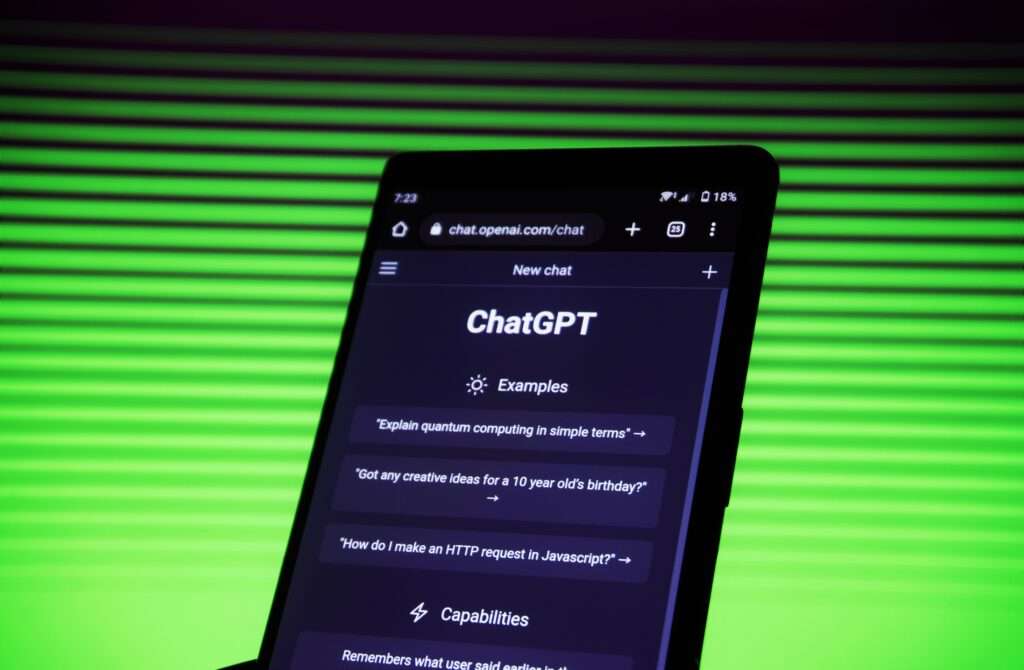ChatGPT in Marketing: Navigating Advantages, Limitations, and Considerations
In the ever-evolving landscape of marketing, new technologies are constantly emerging to enhance communication and engagement. One such innovation making waves is ChatGPT. This blog will break down the key advantages and limitations of using ChatGPT in marketing, offering a simple and easy-to-understand overview for readers curious about its impact.

Advantages of ChatGPT in Marketing
- Enhanced Customer Interaction:
ChatGPT enables businesses to provide real-time and personalized interactions with customers. Automated chatbots powered by ChatGPT can answer queries, offer assistance, and engage users, enhancing overall customer experience. ChatGPT can flex those creative muscles for you and get the job done quickly.
- Continuous Accessibility:
Unlike human agents, ChatGPT operates round the clock. This ensures that customers can access support or information at any time, contributing to improved accessibility and customer satisfaction. Whether you’re an early riser or a night owl, working on a Monday or the weekend, the tool is available round-the-clock to support your work with the same quality of output.
- Cost-Effective:
Implementing ChatGPT for customer support can be more cost-effective than maintaining a large team of human agents. Automated responses can handle routine inquiries, freeing up human resources for more complex tasks
- Consistent Messaging:
ChatGPT ensures consistency in messaging, as it follows predefined guidelines. This helps maintain a uniform brand voice and ensures that customers receive accurate and standardized information. You can also integrate ChatGPT with any tool using its API.
Add it to your website chatbot or inside your app; you can use it for any task to maximize efficiency. For example, you can use it to collect and qualify leads from your website or create emails in minutes.
Limitations of ChatGPT in Marketing
1. Prone to Poor Quality and Inaccurate Output:
Some people worry that tools like ChatGPT might give wrong or low-quality answers. An article in the SF Chronicle explained that these tools can make up untrue information because they learn from the data they were trained on, even if that data doesn’t match real-world facts.
For example, if ChatGPT was trained on a dataset that wrongly stated the capital of a country, it might provide incorrect information when asked about it, even though the real-world fact is different. This shows that the tool can sometimes provide inaccurate responses based on the information it learned during training.
2. Limited Contextual Understanding and Bias:
ChatGPT has a couple of issues. First, it doesn’t really understand the context of a conversation. This means you have to give it the same instructions every time you want it to do something.
Second, it can pick up biases from the data it was trained on. So, the information it gives might not be completely fair or neutral. Imagine if a teacher only taught from one book with a particular viewpoint – the students might end up with a biased understanding, and that’s kind of what can happen with ChatGPT.
3. No Knowledge of Brand Identity:
ChatGPT doesn’t really get to know your brand like a person would. You have to keep telling it about your brand – what it stands for and its values – every time you want it to do something. Because of this, the results it gives might not match your brand well, and they might not be as good as you’d want them to be. It’s like having to remind someone about your company every time you ask them for help, and that can lead to less-than-perfect outcomes.
4. Technical Glitches:
Sometimes, ChatGPT has problems where it just stops working. This can happen unexpectedly, and when it does, it can mess up your work and cause delays in your plans.Imagine you’re using ChatGPT to help you with writing, and suddenly it stops working for a while. You were relying on it to finish a project, but now you can’t get any help from it. This unexpected issue could disrupt your writing schedule and cause inconvenience because you were depending on the tool to be available.
In conclusion, while ChatGPT presents a revolutionary opportunity to elevate marketing strategies, businesses must navigate its advantages and limitations judiciously. Incorporating this technology requires a thoughtful approach to harness its strengths while mitigating potential pitfalls. As the field of marketing continues to evolve, the role of ChatGPT may evolve as well, and staying informed about its developments will be crucial for businesses seeking to leverage its potential effectively.


